There is an elephant in the room that we the people of Atlanta fail to notice. Our main body of water, the Chattahoochee River, is heavily polluted.
According to the Georgia Rivers Network, the Chattahoochee provides us with 70 percent of our drinking water and plays a huge role in supplying us with our hydroelectric power. We use it constantly for recreational activities, and remain ignorant to the level of harm we are bringing to it — and therefore ourselves.
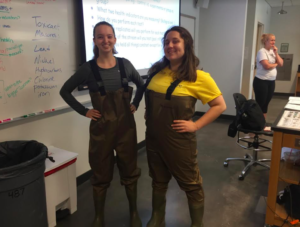
This summer I spent three weeks in a program at Georgia Tech called Bio@Tech. We studied different subjects pertaining to biology: macromolecules, genetics, ecology, etc. During the last week of the program, we split up into research groups and had the whole week to answer an important question: Is the Chattahoochee River polluted? If so, what can the people of Atlanta do to reduce the level of pollution in the river?
Testing the Waters
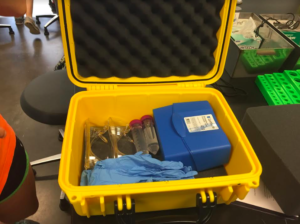 We set out to two tributaries of the Chattahoochee River, Tanyard Creek located in Buckhead and SweetWater Creek located near Six Flags Park, to scout out an answer. To test whether the water was polluted, we studied the population of macroinvertebrates in each of the creeks.
We set out to two tributaries of the Chattahoochee River, Tanyard Creek located in Buckhead and SweetWater Creek located near Six Flags Park, to scout out an answer. To test whether the water was polluted, we studied the population of macroinvertebrates in each of the creeks.
Macroinvertebrates are very small animals (some examples include maggots, leeches, stonefly larvae, and beetle larvae) that usually live on a creek bed’s mossy rocks. They are a very useful indicator of when a body of water is polluted because some species are pollution-tolerant and can stand pollutant filled ecosystems while other species are pollution-intolerant and cannot survive in polluted water.
At both creeks, we collected and sorted the macroinvertebrates by species and identified whether they were pollutant-tolerant or intolerant. Based on our results, we concluded that the Chattahoochee River is, in fact, polluted since we found pollution-tolerant macroinvertebrates at both testing sites.
Pollution: Now what?
Now that we knew the Chattahoochee was polluted, the question was, “How can we reduce this pollution?” In our research, we came up with a few things that Atlantans can do to rid the Chattahoochee River of all of its pollution.
Step 1: Do not litter in or around the Chattahoochee River and its tributaries!
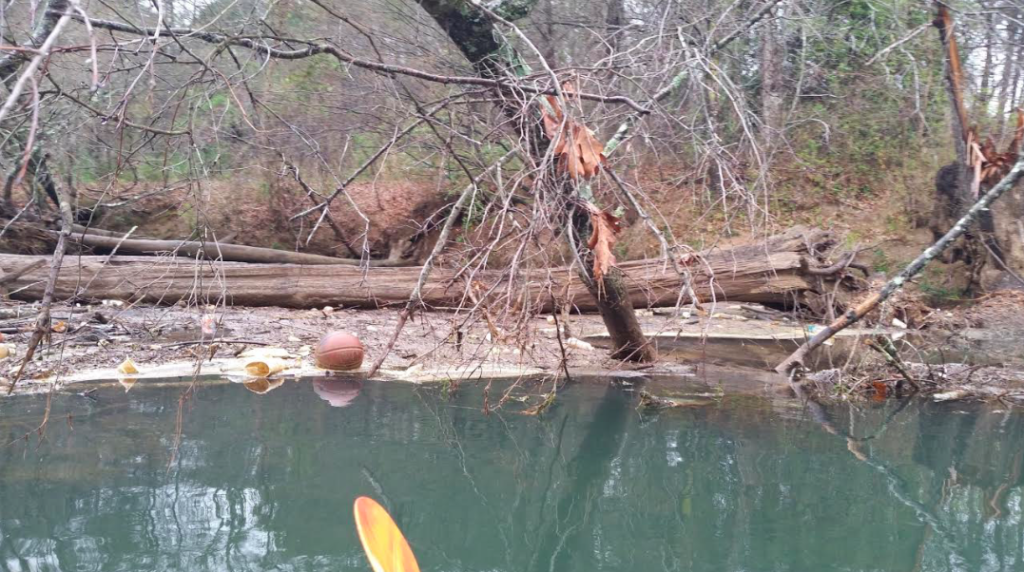
This probably sounds like something you have been hearing since elementary school, but you will be surprised that one of the major causes of pollution in the Chattahoochee River is that people do not throw away their trash, and the trash always gets washed into the river. While we were collecting the macroinvertebrates from Tanyard Creek, a package of mustard floated right past me. I doubt the macroinvertebrates need mustard to satisfy their daily meals. This past year at the Chattahoochee Riverkeepers annual “Sweep the Hooch” event, around 700 volunteers cleaned up 16.2 tons of trash along an area of the Chattahoochee River spanning 70 miles. In 2016, 15.6 tons of trash were removed.
The amount of trash in the Chattahoochee River keeps increasing every year. It is time for that to stop. Next time you visit an area near the Chattahoochee River or any creek or stream near Atlanta, please pick up your trash and throw it away. Also, if you see someone else’s trash, do not just leave it there and assume someone else will pick it up. Be the one who picks up the trash and saves the river and its ecosystem.
Step 2: Join, Volunteer, or Organize a Cleanup with the Rivers Alive Organization
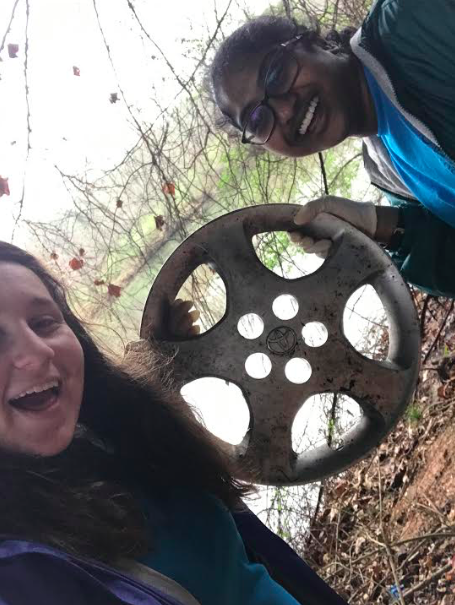
Rivers Alive is an organization dedicated to the cleaning up of the Chattahoochee River. You can visit their website and find out when they will be having their next cleanup. It is free to join, and the results are priceless.
You can also organize your own cleanup through their website. This past spring I organized a cleanup with my school, and after three hours, we had already filled 40 full trash bags with garbage from just a small section of the river. The trash already in the river will not disappear on its own, so it’s up to us to volunteer and clean up the river that plays such a significant role in our daily lives.
Step 3: If you live near a creek, stream or the river, plant vegetation right beside the river.
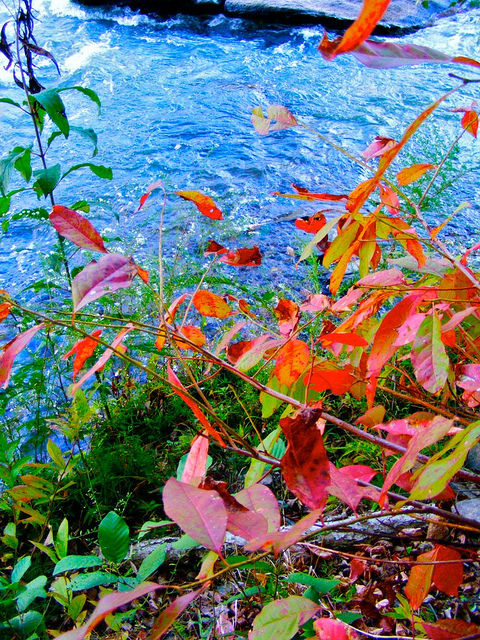
If you grow plants right beside a body of water, those plants will act as a barrier to any pollution, waste, and runoff that can potentially make its way into the river. When you see a lot of vegetation growing on the bank of a river, this is usually an indicator of the river being healthy.
The rising level of pollution in the Chattahoochee river can no longer be ignored. Not only does a polluted river negatively affect the unique ecosystem of the Chattahoochee, but also it poses health risks to Georgians since the river supplies us with more than half of our drinking water. If the pollution keeps increasing at the rate at which it does now, the water will not be drinkable and there will be higher risks of getting dysentery, cholera, E.coli infection, Salmonella, or diarrhea.
Many schools are located near the Chattahoochee River such as North Atlanta High School, Peachtree Ridge High School, Northview High School and Chattahoochee High School. If pollution of the Chattahoochee River continues at its present rate, these schools and others located near the Chattahoochee will feel the negative effects of a polluted river.
The Chattahoochee River provides so much for us that it is time for us to give back. Let us be the generation of Atlanta residents who make a change in Georgia’s waterways. Let’s keep the Chattahoochee River clean!
Rebecca is a senior at Milton High School and a volunteer with the Rivers Alive Chattahoochee River cleanup program.

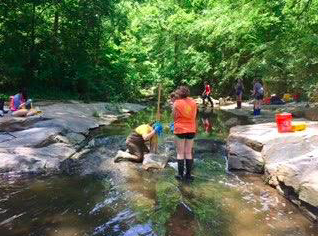


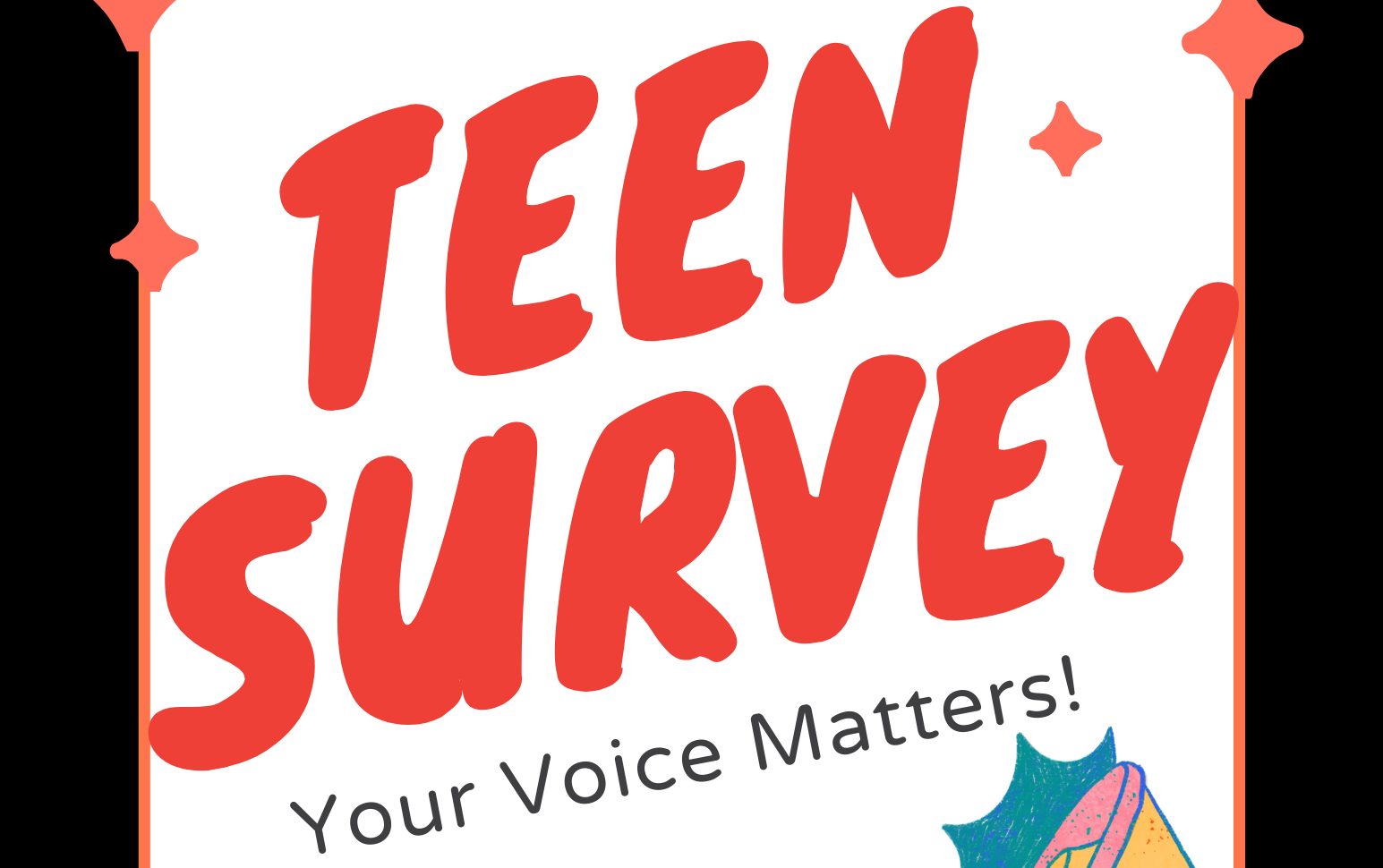
Is it safe to kayak in the chattahoochie river?
Trash in the Chattahoochee does not mean the water is polluted. Ok, so you identified that there are pollution-tolerant macroinvertebrates in the water, what pollutants are actually IN the water? A story on the actual chemical composition of the water would be a better story. Atlanta has, at least in the past, has allowed sewage to run into the Chattahoochee due to heavy rains, in essence, a very inadequate sewage system. A story on this would be good to. (real pollution)